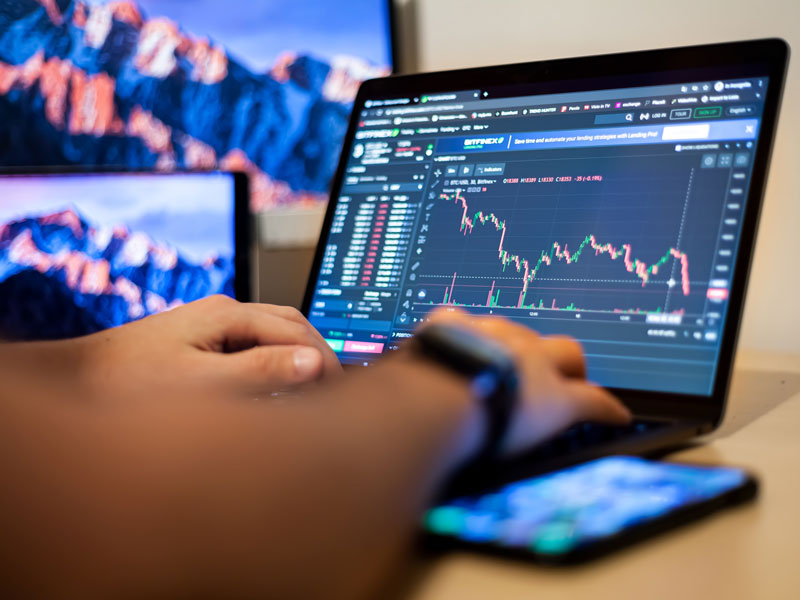Understanding Forex Trading Brokers Your Guide to Success 1906546235
In the fast-paced world of currency trading, selecting the right Forex trading broker is crucial for success. With numerous options available, it can be overwhelming for new traders to navigate through this complex field. This article aims to provide insights into what to look for when choosing a trading broker, helping you make an informed decision that aligns with your trading goals. For additional resources, you can check out trading brokers forex https://tradingplatform-hk.com/.
What is a Forex Trading Broker?
A Forex trading broker is a financial institution that provides traders access to the foreign exchange market. Brokers facilitate transactions between buyers and sellers of currency pairs, acting as intermediaries to ensure smooth trading operations. Different brokers offer varying services, features, and pricing structures, making it essential for traders to carefully evaluate their options.
Factors to Consider When Choosing a Forex Broker
1. Regulation and Trustworthiness
The first criterion to consider when selecting a Forex broker is its regulatory status. Reputable brokers are regulated by financial authorities that monitor their operations to protect traders. Look for brokers regulated by agencies such as the Financial Conduct Authority (FCA) in the UK, the Commodity Futures Trading Commission (CFTC) in the US, or the Australian Securities and Investments Commission (ASIC). A broker’s regulatory status can significantly influence your trading experience and ensure your funds are secure.
2. Trading Costs
Understanding the cost structure is vital when choosing a broker. Brokers usually charge either commissions or spreads. A commission is a fee either per trade or per lot that you must pay directly to the broker. On the other hand, the spread is the difference between the bid and ask price of a currency pair. Compare the spreads and commission structures from various brokers to determine which offers the best value based on your trading style.
3. Trading Platforms
The trading platform is the software that brokers provide to facilitate trading. It should be user-friendly, stable, and equipped with various tools for technical analysis and risk management. Popular platforms such as MetaTrader 4 and MetaTrader 5 are favored for their extensive functionality and customizability. Before opening an account, consider testing the broker’s demo account to evaluate the platform’s usability.
4. Leverage and Margin Requirements
Leverage is a tool that allows traders to control larger positions with a smaller amount of capital. While it can amplify gains, it can also increase losses. Different brokers offer varying levels of leverage. It’s essential to understand margin requirements and how they impact your trades and risk management practices. Make sure to choose a broker whose leverage options align with your trading strategy and risk tolerance.

5. Customer Support
Effective customer support is crucial, especially for novice traders who may have questions or require assistance. Look for brokers that offer multiple channels for customer service, including live chat, email, and phone support. Also, consider the availability of support during trading hours and whether they provide assistance in your native language.
Types of Forex Brokers
Forex brokers can be categorized into several types based on how they operate. Understanding these categories can help traders make an informed decision.
1. Market Makers
Market Makers are brokers that provide liquidity by quoting buying and selling prices for currency pairs. They profit by widening the spread between these prices. Market Makers often execute trades to their accounts rather than on the interbank market, which may lead to potential conflicts of interest. While they provide fixed spreads and are often more accessible for beginners, they might not always offer the best pricing.
2. STP (Straight Through Processing) Brokers
STP Brokers facilitate the execution of trades directly in the interbank market without dealer intervention. They typically offer variable spreads and are known for their transparency. STP brokers can lead to better pricing and faster execution but may require a higher minimum deposit than Market Makers.
3. ECN (Electronic Communication Network) Brokers
ECN Brokers provide direct access to the market through a network of liquidity providers. They offer the best available prices and charge a commission on trades rather than altering spreads. ECN brokers are ideal for more experienced traders who require precise execution and access to multiple liquidity sources. However, they may not be the best option for retail traders who prefer fixed spreads and simpler pricing.
Conclusion
Selecting a Forex trading broker is a critical step in your trading career. By considering factors such as regulation, trading costs, platform usability, leverage, and customer support, you can choose a broker that suits your needs and helps you achieve your trading objectives. Make sure to do your research and compare various brokers before committing your funds to ensure that you have the best possible trading experience. Whether you’re a beginner or a seasoned trader, understanding the nuances of Forex brokers can significantly impact your journey in the financial markets.
